Current as of: April 14, 2025 - 10:07
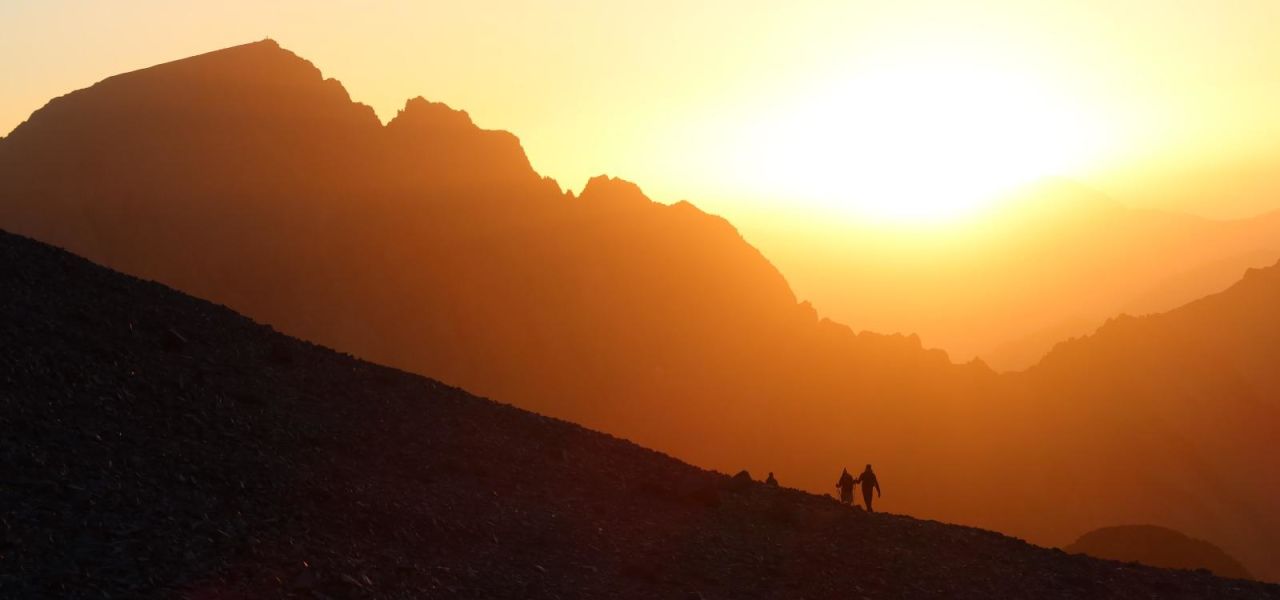
Mt Toubkal Climb Trip Notes
- Ways to Travel: Guided Group
- Destination: Morocco
- Programmes: Walking & Trekking
-
Activity Level:
5 out of 7 - Challenging
- 8 Days: Land Only
- Ages: 16+
- Trip Code: TMM
- Carbon Footprint: 13kg CO2e
Trip Overview
Enjoy an exhilarating trek to the summit of the highest mountain in North Africa
Toubkal stands 13,671ft (4,167m) tall, commanding superb views of the Atlas Mountains. On this eight-day adventure, which had a 99% summit success rate in 2024, we pass through impressive landscapes on well-defined paths; as we climb higher, the paths become steeper but the gain in altitude awards dramatic views towards Marrakech and the Anti-Atlas Mountains. Passing through remote villages and terraced fields, we gain an insight into the life of the friendly Amazigh people and finish with free time in the imperial city of Marrakech.
Please note: Our new seven-day version of this trip is now live! See the itinerary, dates and prices by visiting the new Mt Toubkal Climb trip page.
At a Glance
- Accommodation: 2 Classic nights (hotels), 5 Simple nights (4 full-service camping, 1 gite)
- Five days of walking
- Altitude maximum: 14,671ft (4,167m); average: 8,530ft (2,600m)
- Travel by minibus
- Group normally 5 to 16, plus local leader. Minimum age: 16
Highlights
- Stand on the top of Toubkal, the highest mountain in North Africa
- Join a small group guided by a Tour Leader with expert knowledge of the Atlas Mountains
- Meet remote communities on acclimatisation walks through Amazigh villages
- Enjoy the chance to scale Mount Ouanakrim, Morocco’s second summit
- Camp under the Moroccan mountain sky − our camp team do all the chores!
- Begin and end the adventure in pulsating Marrakech
Is This Trip for You?
This trip has been rated Activity Level 5 (Challenging). For more information on our trip gradings please visit the Activity Level Guidelines page. If you have any queries about the difficulty of the trip please do not hesitate to contact us.
Difficulty
This is a challenging yet non-technical trek to an area of outstanding scenic and cultural interest. Although this trip is not technically difficult, you should be an experienced walker as trails can be very stony. Most routes follow mule trails but there are some rough paths that involve walking on scree. All five walking days include full porterage and you should be prepared for a couple of long days with some boulders and steep sections (maximum eight to nine hours). Jebel Ouanakrim requires a small amount of scrambling near the summit, but it is optional.
Weather
The temperature can alter the difficulty of the trek. Morocco can get very hot during July and August and departures during this time may not be suitable if you struggle with the heat. Also be prepared for some stormy weather, even during summer. There can be snow patches in April/early May and from the end of September, so crampons may be needed for April and October departures. Free-to-use crampons and ice axes will be provided in these circumstances. From May to June, snow can occasionally block some passes in the mountains and force your leader to change the itinerary. As with any trek in mountainous/high altitude areas, safety is paramount and your leaders may amend the itinerary to ensure the group is safe.
The temperatures in Morocco are hot in the summer months. Expect it to be hot to very hot in the desert from May through to September.
Morocco can get cold in the winter months though usually daytime temperatures are mild. It is advisable to pack winter clothes for November through to March when night time temperatures especially in the desert and the mountains can drop considerably. During these months there can also be rain throughout the country. As Morocco is generally mild to hot it is not set up for colder temperatures and so there may not be heaters available. Please pack winter clothes and nightwear to ensure you are comfortable. Of course you can also ask for more blankets from the hotels. Please be prepared for the colder months.
Altitude warning
This trip goes to high altitudes where there is a risk of being affected by Acute Mountain Sickness. Please refer to the Altitude Warning below for further information. To keep a circular itinerary, this holiday offers four nights’ camping, with two of these spent over 9,845ft (3,000m).
Accommodation
Two nights are spent in wild camps as official campsites do not exist in some areas we visit. On the treks we use mules to carry personal gear so only a light daypack is required, occasionally carrying a share of the picnic lunch. Our Marrakech hotel is of a good standard and has a swimming pool to help relax after a challenging trek.
Alternative trip
If you would like a more strenuous ascent of Mount Toubkal, using an ice axe and crampons, please see our winter itinerary – Mount Toubkal Winter Climb (trip reference: TMW).
Ramadan
Ramadan is expected to run from approximately 28 February-29 March 2025. One of the most important periods in the Islamic calendar, it is a special time to visit a Muslim country. Each evening, the streets empty as people head home to break the fast, followed by an air of festivity upon their return. Our leaders and drivers choose to work at this time so we continue to run trips; however, their energy levels may be slightly lower than normal. Many tourist sites, restaurants and shops will have an amended schedule, but your tour leader will know how to adapt the itinerary to still experience all the inclusions on this trip and maximise your experience during this special time.
Group
There will be a local leader, driver and local muleteers/guides throughout. A second leader will join the group for all walking days for groups of 11 or more.
Adult min age: 16
Min group size: 4
Max group size: 16
Itinerary

Land Only
- Start City: Marrakech
- End City: Marrakech
Land Only Itinerary
Depending on your arrival time, there may be some time to explore this wonderfully colourful city before our group meeting in the early evening.
Accommodation: Hotel Gomassine (or similar)
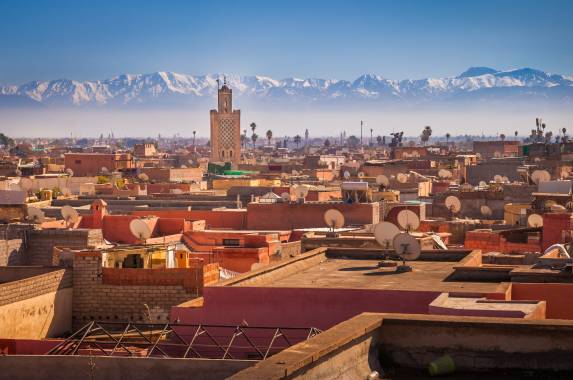
The adventure starts in Marrakech, a thrumming city nearly 1,000 years in the making. Depending on your arrival, there may be time to explore before our welcome meeting in the early evening.
Accommodation: Hotel Gomassine (or similar)
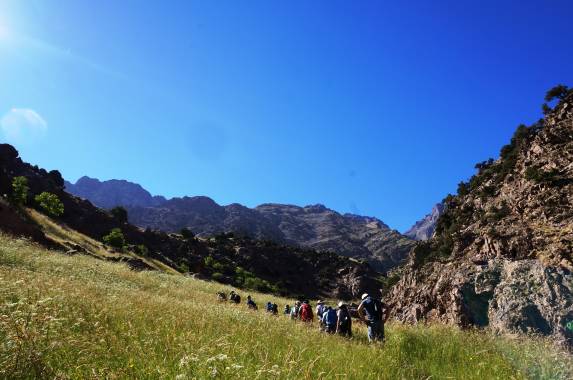
After breakfast, we transfer by minibus to Imi Oughlad, a journey that takes us from the plains around Marrakech into the heart of the High Atlas range. After meeting our mules and muleteers, we start a five-hour walk, climbing up to the Tizi N’Tacht (6,560ft/2,000m) before descending into the Azaden Valley, home to beautiful juniper forests. We camp on the outskirts of a small village by the river.
Accommodation: Full-service camping
Drive time: 1hr 30min
Enjoy a full day walking on the northern slope of Mount Toubkal. We travel through Azib Tamsoult and the Irhouliden cascade before arriving at our camp for the night, which sits at L’Azib N-Tzikarte (8,860ft/2,700m). There is an optional ascent in the afternoon for those who want to try a more demanding three-hour trek to the summit of Hadjj (10,500ft/3,200m), for excellent views of Mount Toubkal.
Accommodation: Full-service camping
Today we cross the Aguelzim Pass (11,645ft/3,550m), the climb is quite steep but once at the top we can enjoy panoramic views of the Toubkal Massif and towards the plains that surround Marrakech. We then descend to Toubkal Base Camp and either enjoy a three-hour optional climb to the summit of Ouanoums (11,975ft/3,650m) or simply relax. The busy refuge, which sits at 10,522ft (3,207m), was constructed by Club Alpin Française in 2000. We camp in the grounds but can still benefit from the facilities, including showers, a small shop and cosy lounge.
Accommodation: Full-service camping

We make an early start from basecamp for the ascent of Mount Toubkal, climbing steeply through scree before traversing the southern ridge to reach the summit at 13,671ft (4,167m). After enjoying magnificent panoramas, we descend to basecamp. We have the rest of the afternoon free to reflect on our achievement.
Accommodation: Full-service camping
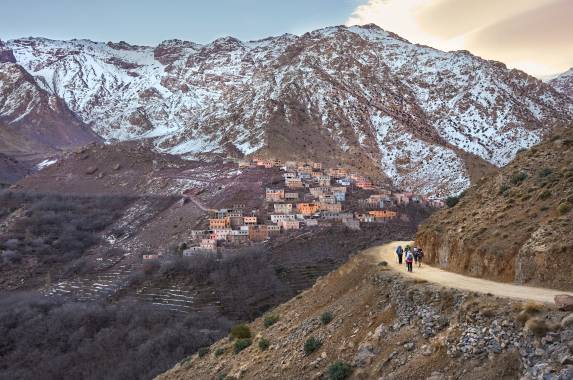
We have an exciting opportunity this morning to ascend another 13,415 ft (4,089m) peak – Mount Ouanakrim. Although lower than Toubkal, this summit is considered more challenging, but a highlight of the week for many. Depending on the weather and group’s ability, our leader will decide if this walk is achievable. On return, we leave basecamp to walk down to the village of Aroumd (6,247ft/1,904m). If there is time, we spend the afternoon exploring the village. Others may choose just to relax on the pretty terrace.
Please note, the distance below does not include the optional climb.
Accommodation: Hotel Aremd (or similar)
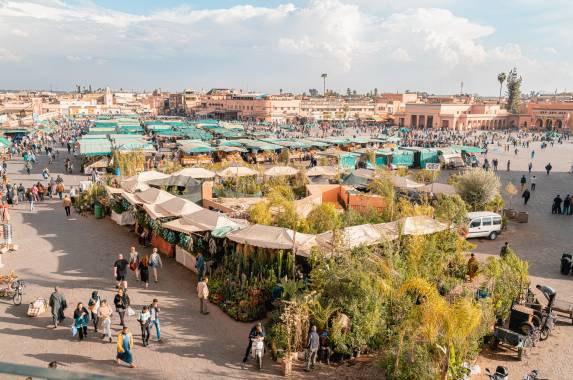
The short walk down to Imlil is followed by the drive back to Marrakech, where we have a guided tour. Taking in the main sites, we learn about the history, culture and architecture of this wonderful city. We then have free time to explore Djemaa el Fna (the main square) and the souk, where you can engage in serious bargaining for souvenirs.
Accommodation: Hotel Gomassine (or similar)
Drive time: 1hr 30min
Trip ends after breakfast. Transfer to the international airport.
Our adventure ends after breakfast. But if you’d like a little more time in Marrakech, speak to your sales representative about extending your stay.
Altitude Warning: This trip includes one or more nights over 9,845ft (3,000m) above sea level, where there is a genuine risk of being affected by acute altitude illnesses; if left untreated, this can be life-threatening. Most should expect to experience some mild symptoms of altitude sickness, such as headaches, shortness of breath or sleeplessness. Our leaders are trained to identify symptoms of severe altitude illnesses and, if a customer requires extra care, arrangements such as a rapid descent will be made.
Exodus itineraries are informed by the Wilderness Medical Society (WMS) Guidelines for the Prevention of Altitude Illnesses and designed to allow for adequate acclimatisation. Due to terrain and/or logistical factors, there may be nights where the sleeping altitude gain is more than 1,640ft (500m), increasing the risk. The WMS highlight that because the rates of acclimatisation and physiologic responses to high altitude vary considerably between individuals, the recommendations given, although generally effective, do not guarantee successful prevention. Participants should be aware of the inherent risk posed by altitude.
Several medical conditions or medications can affect a person’s ability to acclimatise, making them more susceptible to acute altitude illnesses. Those with pre-existing conditions, such as heart or lung conditions, those who have suffered with altitude sickness before, or those with concerns about overall physical ability, should consult their doctor before booking. The drug Diamox (acetazolamide) may aid acclimatisation in some individuals. Those considering using Diamox should speak to their doctor about the drug, its suitability, side-effects, and a prescription. Please note, while we endeavour to assist all our customers in achieving their goals, there may be times when a leader decides to delay or stop someone’s ascent based on their condition.
Ascents, descents and distances: All ascents, descents and distances listed in the daily itinerary have been measured by our local partners or tour leaders, in many cases with satellite-based mapping software. However, different GPS measuring devices can give differing results, particularly on winding paths or in mountainous terrain. Measurements stated throughout these Trips Notes are given to help you understand the types of terrain and distances you will encounter. Timings stated will vary depending on the pace of your group.
Accommodation
Hotel, gite and camping
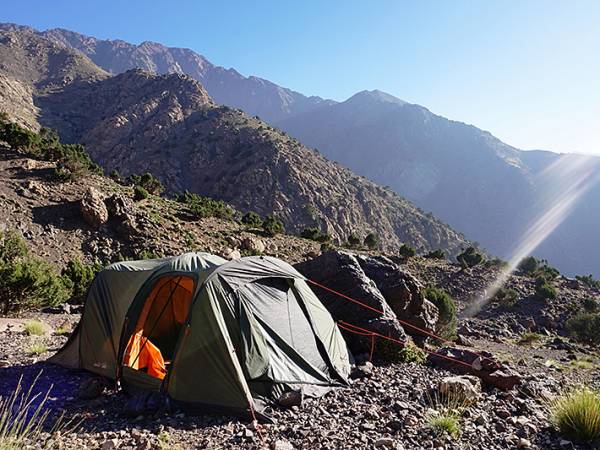
On this trip, we spend two nights in a hotel in Marrakech, four nights camping and one night in a gite. Below are the accommodations we typically use:
Marrakech: Hotel Gomassine (nights 1 and 7)
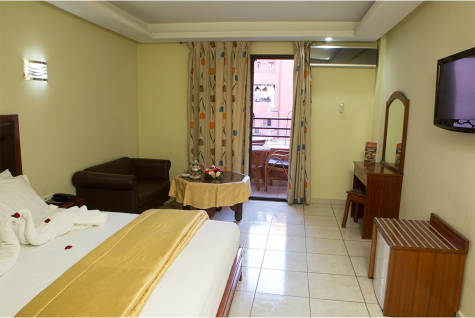
Our adventure begins and ends at Hotel Gomassine in the Guéliz neighbourhood of Marrakech. The hotel itself has a small pool with sun loungers, plus there are plenty of shops, cafes and restaurants nearby. If, upon arrival, you need to pick up anything for the days ahead, the Carre Eden mall is a five-minute walk away, where you’ll find international shops and a Carrefour Gourmet supermarket.
Camping: Nights 2-5
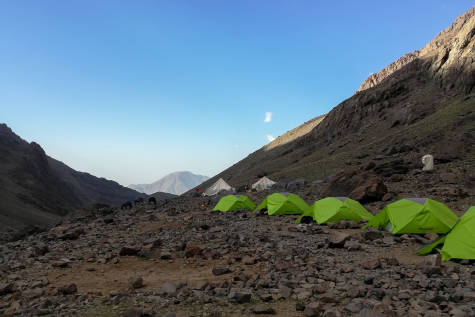
Our four camping nights are a truly wild experience, as we sleep under the Moroccan sky, cradled by the High Atlas Mountains. Our first two nights are spent wild camping, firstly in the Azaden Valley on the outskirts of a small village (night 2), then at L’Azib N-Tzikarte (night 3). Our final two nights (nights 4 and 5) are at Mount Toubkal Base Camp, where we normally camp within walking distance of a mountain refuge where (for a small fee) you can shower (though the water is often cold).
To make the experience more comfortable, the camp team put up a toilet tent at our campsites – it’s basic but does the job. All the camping is full service, which means you don’t need to put up your tent or do the camp chores. Sleeping mats are provided.
Aroumd: Hotel Aremd (night 6)
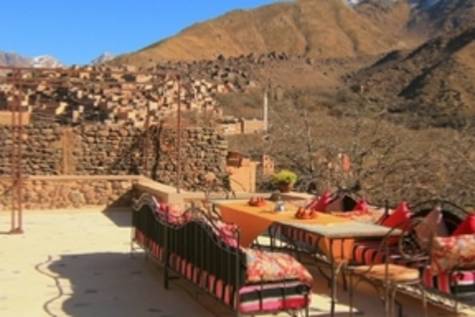
One night is spent in a gite (guesthouse) in Aroumd. This is twin-share with shared facilities, including hot showers and a lovely terrace overlooking the mountains.
Worth knowing
- Hotel Aremd is more akin to a mountain refuge with a dorm room. Single supplements are not available for these nights.
- There may be times when the weather forces us to use a gite instead of camping at Mount Toubkal Base Camp.
- Single supplement is not available in the gite.
Single supplement from £ 100
Accommodation - Pre Trip
Pre-tour accommodation available in Marrakech on request.
Accommodation - Post Trip
Post-tour accommodation available in Marrakech on request.
Food & Drink
All breakfasts, five lunches and five dinners included.
Moroccan food is excellent though not particularly varied.
Breakfasts usually consist of porridge, bread and jam, and coffee or tea. Main meals will often be tajines of meat and vegetables with a great mix of herbs and spices and light, fluffy cous cous. Salads will often comprise of both cooked and raw vegetables including tomatoes, smoked peppers and aubergine (eggplant).
When eating out, meals are reasonably priced –(approximates)
Lunches: 60 to 100 Dirham (US$6-10) Dinners: In cities 80 to 200 Dirham (US$8-19) and in small towns villages 60 – 100 Dirham (US$6-10)
Soft drinks in restaurants : 10 to 20 Dirham (US$1-1.90) Alcohol: Beer 30 to 50 Dirham (US$2.85-5)– Wine 150 Dirham (US$14) and more
Vegetarians can be catered for but there is a fairly limited choice of vegetarian couscous, tajine or omelettes. This is particularly the case during the more rural sections of the trip. Please note that if you have any special dietary requirements you should inform the Exodus Office prior to the trip. If you have a specific medical/dietary need (e.g. coeliac or vegan) you may find it helpful to bring some food with you from home.
If you have any special dietary requirements, you should inform your sales representative prior to the trip. If you have a specific medical/dietary need (ie coeliac or vegan) you may find it helpful to bring some food items with you from home.
Transport
We use a private bus for this trip, the size of which will depend on the group size, with a local driver. Roads in Morocco are reasonable and driving conditions in towns and on the plains are good. On mountain roads, the pace will be slower. Although the buses normally have air conditioning and heating, they may not be up to European/North American standards.
Weather & Seasonality
In spring and autumn, Marrakech is warm to hot (maximum daytime temperatures around 25C-30C/77F-86F) with pleasantly cool nights. In the High Atlas, the sun is strong, but the air is cool and the nights can be cold. Mornings are clear but cloud in the afternoon is usual, often bringing showers and occasional storms.
During summer, Marrakech is very hot (33C-42C), as are some of the lower valleys of the High Atlas. At medium altitudes, the days will be hot and the nights warm.
Only above 9,840ft (3,000m) will you require warm clothing. During the summer, the sky should be clear but, as in all mountain areas, the weather can be unpredictable and late August can have stormy weather. Rain can be experienced on all treks, usually showers but sometimes storms. In April/May and occasionally in October there may be a little snow lying at the higher altitudes.
Joining Instructions
Key information
Start hotel: Hotel Gomassine, 71, 40000 Bd Mohamed Zerktouni, Marrakech 40000
Phone: +212 5244 33086
Recommended arrival time:Hotel check-in is from 2pm
Airport: Marrakech Menara Airport (RAK)
Getting to the start hotel
The start hotel is approximately a 20-minute drive from the airport. Exodus provides free arrival transfers to the start hotel from the airport for all customers.
If you would like further information on joining this trip, please speak to your sales representative.
Catching your return flight
Exodus provides free departure transfers for all customers to Marrakech Airport (RAK) from the end hotel. If you’re not taking the Exodus transfer, allow three hours for check in, bag drop, immigration and security. The airport doesn’t accept mobile boarding passes, so take a printed boarding pass to avoid further delays.
Please note, unless specified otherwise, the transfers will be to the start (or pre-tour) hotel and from the end (or post-tour) hotel and will be on the date on which the tour starts/ends; transfers to other hotels in the same city and/or on different dates may attract an extra charge. Transfers should be booked with your sales representative at least two weeks before the tour starts.
Marrakech airport
The amount of time it takes to get through Marrakech Airport can vary considerably. Therefore, we suggest you mitigate for delays and allow two hours to get through immigration, security and baggage reclaim on arrival. Take a pen with you to complete the arrivals form and have the details of your accommodation to hand for this purpose. Operators are not allowed to wait inside the terminal building for clients, so please find your Exodus representative outside the main doors.
Upon departure from Marrakech, we suggest allowing three hours to navigate the airport: check in, bag drop, immigration and security can take even longer on exit. The airport doesn’t accept mobile boarding passes, so we suggest having a printed boarding pass to avoid subjecting yourself to further delays.
Full joining instructions including local emergency numbers will be sent to you as part of our Final Joining Instructions. If you do not receive these at least a week before departure, or require them earlier please contact our office or your travel agent.
Location start: Marrakech
Location end: Marrakech
What To Take
Essential Equipment
- Waterproof and windproof jacket
- Fleece jacket or equivalent
- Gloves and hat (for summit days)
- Three-season sleeping bag
- Travel pillow
- Reusable water bottle
- Sunhat
- Sunglasses
- Sunscreen
- Backpack for the dya
- Light walking boots with good ankle support and tread
- Walking poles (there are some surfaces where these will be most helpful)
- Water purification tablets or hand held filter (see below)
- Water-free hand gel
- Soap
- Toilet paper
- Torch (flashlight)
- Earplugs if you have trouble sleeping
In addition to the items mentioned above, essential kit for treks departing in April, May, September and October:
- Warm jacket
- Warm trousers
- Waterproof trousers
- Four-season sleeping bag
Sleeping mats are provided. If you decide not to bring a kitbag, please bring a soft holdall and not a hard suitcase.
Although Morocco is a Muslim country, the dress code in the large cities is not as strict as it used to be. So it is fine to wear tops with no sleeves and shorts. When entering mosques and in more rural areas it is advisable to be more modest and wear for example over the knee skirts/shorts/trousers and with shoulders covered. Additionally, women should avoid wearing revealing clothes.
Drinking water
In an effort to reduce the single use plastics you may like to collect water from streams along the way though this water should not be drunk untreated, we recommend you bring a reusable bottle with you and use an effective form of water treatment. There are many products available that are more effective than the traditional purification tablets – we recommend talking to an outdoor retailer for the latest advice as technologies are improving all the time: make sure to check the product’s performance in cold/freezing conditions and consider battery life (lithium batteries are best in cold conditions).
Handheld UV filters, such as a SteriPEN, are very effective, can treat 0.25gal (1 litre) of water in a couple of minutes and the water is ready immediately – look for lightweight lithium battery models and remember you will need to bring a wide-mouthed bottle (eg Nalgene) for use with these devices.
There are also an array of water filter and purifier bottles on the market but check their weight, capacity and performance in freezing conditions.
Exodus has partnered with Water-to-Go, a filtration system that eliminates more than 99.99 percent of all microbiological contaminants from any non-saltwater source – please visit Water-to-Go for more information. Exodus customers can claim 15 percent off your first order, and better still, 15 percent of the purchase value will be donated to the Exodus Travels Foundation. The crew also provides water at a cost.
Exodus kitbag
If you book this trip, we provide a free Exodus kitbag to pack your luggage in while on trek. Once you have booked, you will be sent instructions on how to claim your bag (they are not sent automatically). Please note, if you book less than three weeks before the departure date, we cannot guarantee your kitbag will arrive before your trip starts. If this is the case, please contact us on customerops@exodus.co.uk (or customeroperations@exodustravels.com if you’re based in the US or Canada). See www.exodus.co.uk/kitbags for full T&Cs.
Practical Information
Visa
Morocco
Travellers from the UK, US and EU normally do not need a visa to enter Morocco. Please note, visa requirements often change and it is your responsibility to obtain any required visas for this trip. Therefore, we recommend that you check with the nearest embassy or consulate of your chosen destination(s), including any countries you may be transiting or transferring through.
Some local governments provide guidance on what visas their citizens need. To help, we’ve gathered a selection of useful links below.
• Australia: www.smartraveller.gov.au/destinations/africa/morocco
• Canada: www.travel.gc.ca/destinations/morocco
• United Kingdom: www.gov.uk/foreign-travel-advice/morocco/entry-requirements
• USA: www.travel.state.gov/content/travel/en/international-travel/International-Travel-Country-Information-Pages/Morocco.html
Vaccinations and Health
Morocco
There are no required vaccinations. However, you may want to consider vaccinations for tetanus, hepatitis A, hepatitis B, rabies, tuberculosis and typhoid. A polio vaccination certificate may be required for some travellers. Please confirm your needs and requirements with your doctor or travel clinic.
Bilharzia is known to occur in some of the lakes or rivers visited on this itinerary, we therefore advise all to take advice from your guide or leader locally before venturing for a swim.
Local Time
Morocco's time zone: Africa/Brazzaville (UTC +01:00)
Electricity
The gite does not have shaving points but there are electrical plugs in communal areas. While camping, there will be no opportunity to charge electrical items.
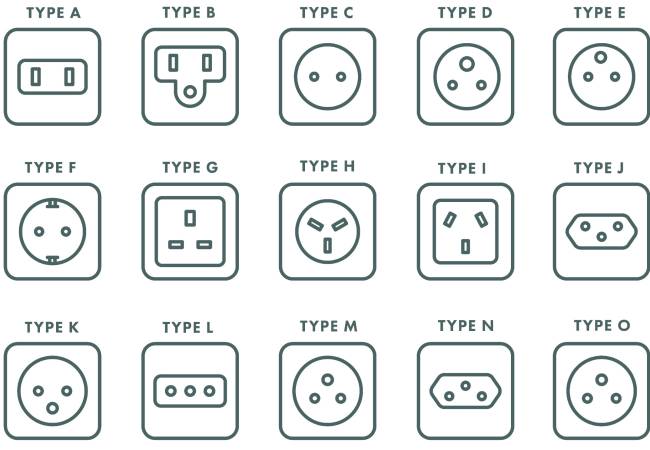
Money
Morocco's currency: Moroccan dirham (MAD), a non-convertible currency. You can only import/export a maximum of 2,000 dirham to or from Morocco.
ATM Availability
You can use Visa or MasterCard at the ATMs, though these are only available in larger towns and cities. Credit cards are normally accepted for more expensive souvenirs, such as carpets (but shops may charge a five percent supplement for this). Please do not bring travellers cheques.
Extra Expenses & Spending Money
We recommend you change your money at the airport into the local currency, as Morocco only allows 2,000 dirhams to be imported or exported. There is no limit on the amount of foreign currency you take. When changing your money, ensure you keep hold of your exchange receipt as you may need to show it at the airport bank at the end of your holiday where it’s normally possible to change any unspent dirham notes back into Euros, British pounds or US dollars.
Allow approximately 30 – 70 dirhams (US$3-US$6.50) per day to cover postcards, small souvenirs, soft drinks etc. See the eating and drinking section for more details on expenditure.
Tipping
Our local staff are paid fairly for their work with Exodus and tipping is at your discretion for both the leader and the local staff. However, we would like to advise that tipping is part of the local culture and generally expected. If you do wish to tip, we have found it useful for the group to have a kitty for tipping – about 400 dirhams (US$42) per person. This can make tipping local staff (such as drivers, cooks and guides) easier and less confusing. If you do not wish to join the group kitty, do not feel pressured. Many clients also wish to tip their leaders at the end of the trip, we suggest 50 dirhams a day per person. This is completely at your own discretion and to be used as a guideline only.
Sustainability and Impact
As a certified B Corp, we’re on a mission to improve our social and environmental impact across all our adventures.
We do this through our innovative Thriving Nature, Thriving People plan.
This ‘nature positive’ approach is designed to help nature and communities thrive in harmony though practical solutions, such as reducing carbon and waste on our trips, supporting conservation projects through the Exodus Adventure Travels Foundation, and rewilding 100 square metres for every Exodus traveller.
Important Information
Water safety
This trip includes time by a lake, river or sea, where there may be opportunities to swim. You should always seek local advice before deciding whether to swim. Open-water or wild swim spots should be treated with extreme caution. Information on how to keep yourself safe while swimming is shown here.
Travel insurance
Please ensure your travel insurance is valid for trekking over 13,120ft (4,000m).
Important Information
Your safe participation
When booking this trip, you should be confident in your ability to participate in all activities described in these Trip Notes. If you have any doubt about your suitability, please call us and ask to speak to one of the experts on this itinerary.
Although our leaders are well trained to deal with different capabilities, if they have any concerns about someone’s ability to safely take part in an activity, or their impact on other people’s enjoyment, we authorise them to take necessary action which, in some circumstances, may involve asking someone to miss that activity.
By booking this trip you agree to our Booking Conditions which clearly state that our leaders have the authority to do this. In these rare instances we will ensure anyone sitting out is safely provided for and offered alternative options where possible. Refunds will not be provided for activities missed and customers may be liable for additional costs incurred.
Seatbelts
All vehicles used by us should be equipped with working seatbelts, except where approved by us based on the vehicle type or journey. Wherever seatbelts are available, we require our customers to use them for their own safety, even where it may not be a legal requirement.
How to Book
- Check availability: Go online to check availability, or contact us by phone or email.
- Secure your place: You can provisionally hold a place on this trip, usually for between three and seven days.
- Complete your booking and payment
When you’re ready to book, go to our website for online bookings, book over the phone or you can complete a booking form (available online or on request by calling us). We accept all major credit and debit cards, or you can pay be cheque.
After booking
You will receive your booking confirmation letter and invoice, which includes extra information and guidance about your travel arrangements.
Full joining instructions, including local emergency numbers and details of how to reach the start point, will be sent to you approximately two to three weeks prior to departure. If you do not receive these at least a week before departure, or require them earlier, please contact our office or your travel agent.
Trip Note validity
These Trip Notes are valid from the “Current as” date on page one. They will occasionally be updated after booking and before departure; if there are any updates that significantly impact the inclusions or itinerary, customers will be written to separately. They will also receive a link to the most up-to-date Trip Notes with their Final Joining Instructions before travelling.
The information in these Trip Notes is given in good faith. Where differences exist between the Trip Notes and our current brochure or website, the Trip Notes supersede the brochure and website. All holidays can be subject to unexpected changes; to enjoy them you should be prepared to be flexible where necessary. Occasionally, it may not be possible to follow the itinerary as planned. This may be for a variety of reasons – climatic, political, physical or other. In these circumstances we will make the best-possible alternative arrangements that maintain the integrity of the original itinerary.
Licensing
Exodus is fully licensed and bonded as a tour operator. We hold Air Traffic Organisers Licence (ATOL) number 2582, issued and bonded with the Civil Aviation Authority (CAA). We are also bonded to the International Air Transport Association (IATA) and we are members of the Federation of Tour Operators (FTO) and ABTA – The Travel Association. This means you can book your Exodus holiday with confidence, as all money paid to us for your trip is fully protected.